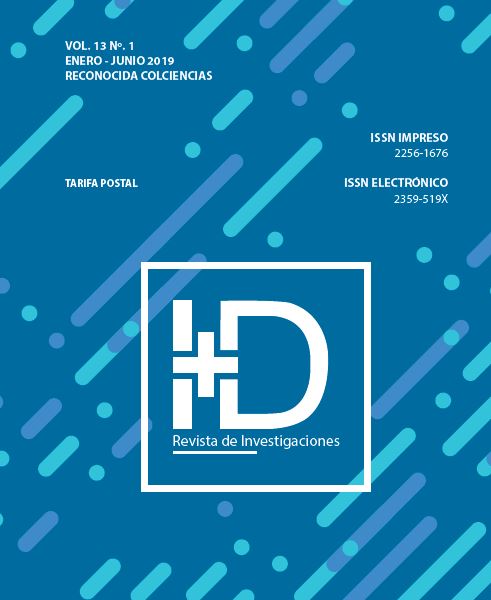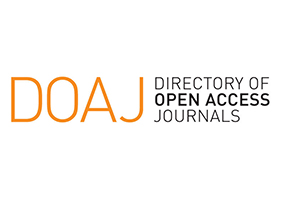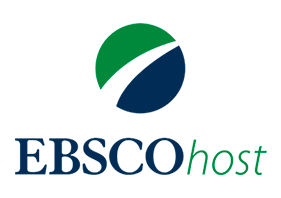Methodology to learn how to decompose a number into prime factors using functional programming
DOI:
https://doi.org/10.33304/revinv.v13n1-2019003Keywords:
Algorithm, learning, natural number, prime numbers, functional programming, problem solving.Abstract
This article proposes a methodological way to teach and learn to solve the problem of decomposing, algorithmically, a natural number in its prime factors using the principles and resources of functional programming within a course of computer programming of an engineering program. The proposed methodology has allowed exposing a joint way of building solutions to common and everyday problems in an interdisciplinary way since it links programming, logic and mathematics. The results indicate that from problems inherited from mathematics, efficient solutions can be found using computer programming and that these problems can be familiar to students. It is concluded that the proposed methodology is effective and can be extrapolated to other subjects and to other courses in different engineering formation programs.Downloads
References
Acevedo, G. A. V., & Ambrosio, J. E. G. (2014). Utilización del LEGO serios Play como herramienta para la solución de problemas. I+ D REVISTA DE INVESTIGACIONES, 3(1), 51–59.
Attard, A., Di Ioio, E., & Geven, K. (2010). Student Centered Learning. An insight into theory and practice. Bucarest: Lifelong learning programme - European Community.
Ausubel, D. (1963). Psychology of Meaningful Verbal Learning: An Introduction to School Learning. New York: Grune & Stratton.
Ausubel, D. (1986). Sicología Educativa: Un punto de vista cognoscitivo. Ciudad de México: Trillas.
Boyer, C. (2010). Historia de la Matemática. Madrid (España): Alianza Editorial.
Brassard, G., & Bratley, P. (2006). Fundamentos de Algoritmia. Madrid: Prentice Hall.
Brown Wright, G. (2011). Studen centered learning in Higher Education. International Journal of Teaching and Learning in Higher Education, 23(3), 92-97.
Bruner, J. S. (2009). Actos de significado: Mas allá de la revolución cognitiva. Madrid: Alianza Editorial.
Chabert, J. (2005). A history of algorithms. Berlin (Germany): Springer.
Crandall, R., & Pomerance, C. (2005). Prime Numbers. A computational perspective. New York: Springer.
Crilly, T. (2011). Grandes cuestiones matemáticas. Barcelona: Ariel Editorial.
Deitel & Deitel. (2013). C++ Programming. New York: Prentice Hall.
Diaz Barriga, F. (2005). Estrategias docentes para un aprendizaje significativo. México: McGraw Hill.
Felleisen, M. e. (2006). How to design Programs. Boston: MIT Press.
Fríes, E., Monzón, G., & Di Paolo, J. (Junio de 2014). Resolución de una situación problemática mediante la utilización de TIC. (A. C. ACOFI, Ed.) Revista Educación en Ingeniería, 9(17), 45-52.
Gomez Martin, M., Gomez Martin, P., & Gonzalez Calero, P. (2007). El estilo de aprendizaje y la relación con el desempeño académico de los estudiantes. Revista Iberoamericana de Inteligencia Artificial (33), 25-36.
Güiza, R. R. M. (2014). Una mirada entre programación paralela ya tradicional práctica educativa. I+ D REVISTA DE INVESTIGACIONES, 4(2), 23–33.
Jiménez Murillo, J. (2014). Matemáticas para la computación. Ciudad de México: Alfaomega.
Jones, L. (2007). Student Centered Learning. Cambridge: Cambridge University Press.
Kaasboll, J. (1999). Exploring didacti models for programming. Oslo: Universidad de Oslo.
Kline, M. (2012). El pensamiento matemático de la antiguedad a nuestros días. Madrid: Alianza Editorial.
Meavilla, V. (2012). Eso on estaba en mi libro de Matemáticas. Barcelona: Editorial Almuzara.
Polya, G. (1989). Cómo plantear y resolver problema. México D. F.: Editorial Trillas.
Rey Pastor, J., & Babini, J. (2005). Historia de la Matemática. Barcelona (España): Editorial Gedisa.
Romero Chaves, C., & Rosero Sosa, M. (01 de Junio de 2014). Modelo de Enseñanza y su relación con los procesos metacognitivos en programación de sistemas. (A. C. ACOFI, Ed.) Revista Educación en Ingeniería, 3.
Rooney, A. (2009). Historia de las Matemáticas. Barcelona (España): La Biblioteca del Saber.
Scott Fogler, H., Le Blanc, S., & Rizzo, B. (2014). Strategies for creative solving problem. Boston: Prentice Hall.
Shoup, V. (2008). A computational introduction to number theory and algebra. Cambridge: Cambridge University Press.
Trejos Buriticá, O. (2000). La Esencia de la Lógica de Programación. Manizales: Centro Editorial Universidad de Caldas.
Trejos Buriticá, O. (2008). Algoritmos Problemas Básicos. Pereira (Colombia): Papiro.
Trejos Buriticá, O. (2009). Fundamentos de Programación. Pereira: Editorial Papiro.
Trejos Buriticá, O. (2013). Significado y Competencias. Pereira: Papiro.
Van Roy, P. (2008). Concepts, Techniques and Models of Computer Programming. Estocolmo: Université catholique de Louvain.
Van Roy, P. (2008). Techniques and methods in programming computer. Louvaine: University Press.












